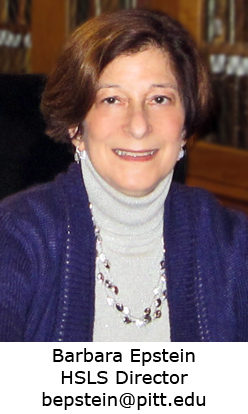 You may have noticed that HSLS has reduced its purchases of print materials over the past several years. In fact, we no longer subscribe to any scholarly journals in print! All of our journals are electronic. And we know that users appreciate the ability to read articles anywhere, anytime.
You may have noticed that HSLS has reduced its purchases of print materials over the past several years. In fact, we no longer subscribe to any scholarly journals in print! All of our journals are electronic. And we know that users appreciate the ability to read articles anywhere, anytime.
Transition from print to electronic books has been a much longer process. Our book collection has traditionally received less use than our journals; this is generally true of health sciences libraries. Scholarly publishers have been slower to convert to electronic book publishing, and there can be a significant delay after a book is published in print before an electronic copy is available. Pricing and access models for e-books can also be problematic. Instead of licensing content for unlimited institutional use as we do with e-journals, e-books are often made available in the traditional library mode: one user per “copy” of the title.
E-books are available from many different vendors and platforms. Unlike journal articles, there are no curated databases such as PubMed or Scopus that permit users to search for content across publishers and journal titles. HSLS’s unique “E-Book Full Text Search” option on our home page helps users search the full content of e-books across platforms, and this has helped to promote e-book use here.
But the publishing marketplace is in constant flux, and we seem to have reached a tipping point in our ability to make e-books available to our users, and in users’ readiness to accept e-books in place of print. Our population is geographically scattered, fewer people use the print collection onsite in the library, and nearly everyone has one mobile device, if not two. At the same time, we have better purchasing/licensing options for e-books.
As we move into the new year, you will see more HSLS e-books and fewer print books in Falk Library, as we take another giant step into the digital future.
Happy reading and Happy New Year!